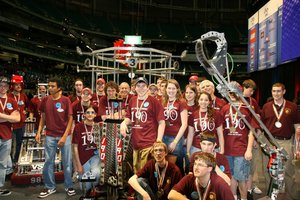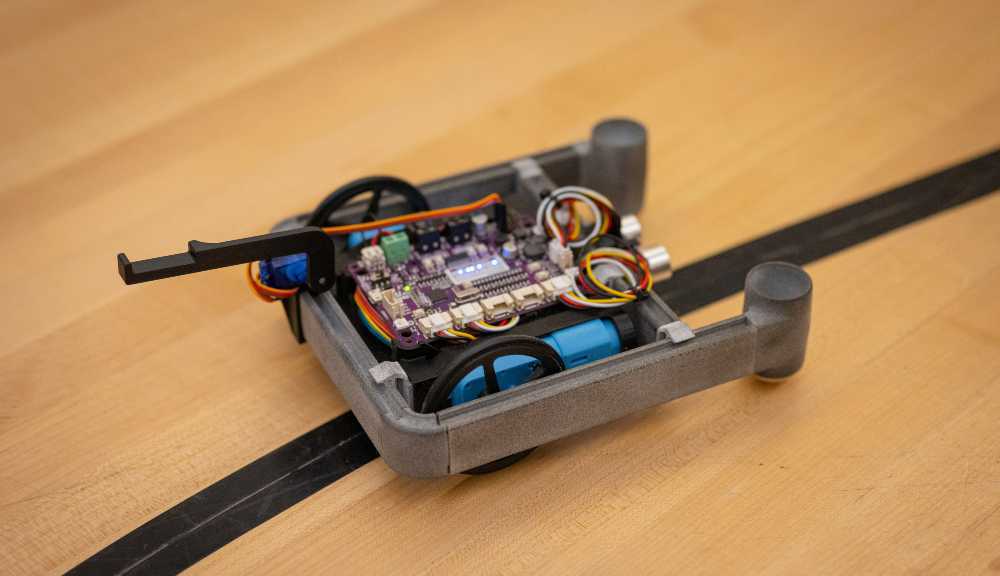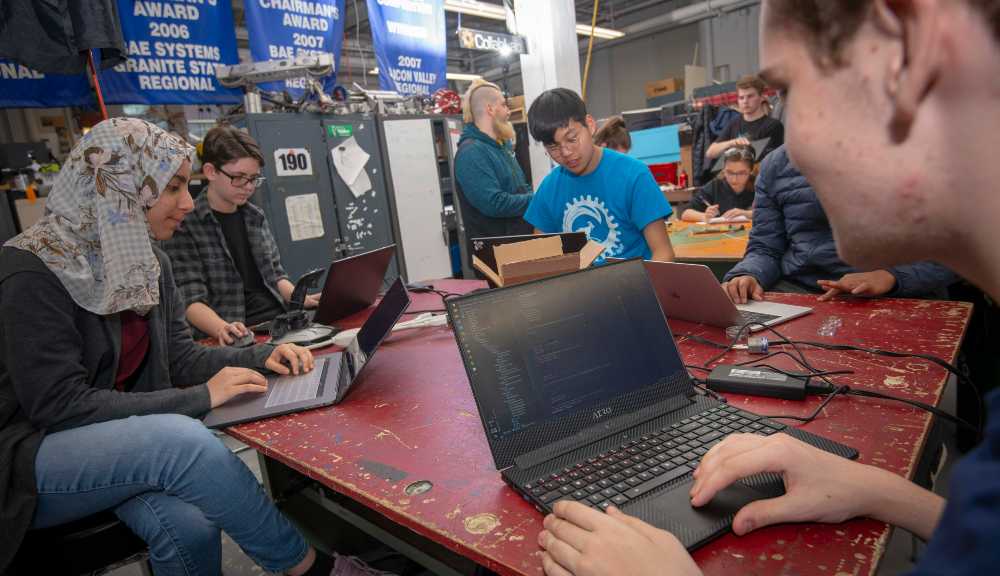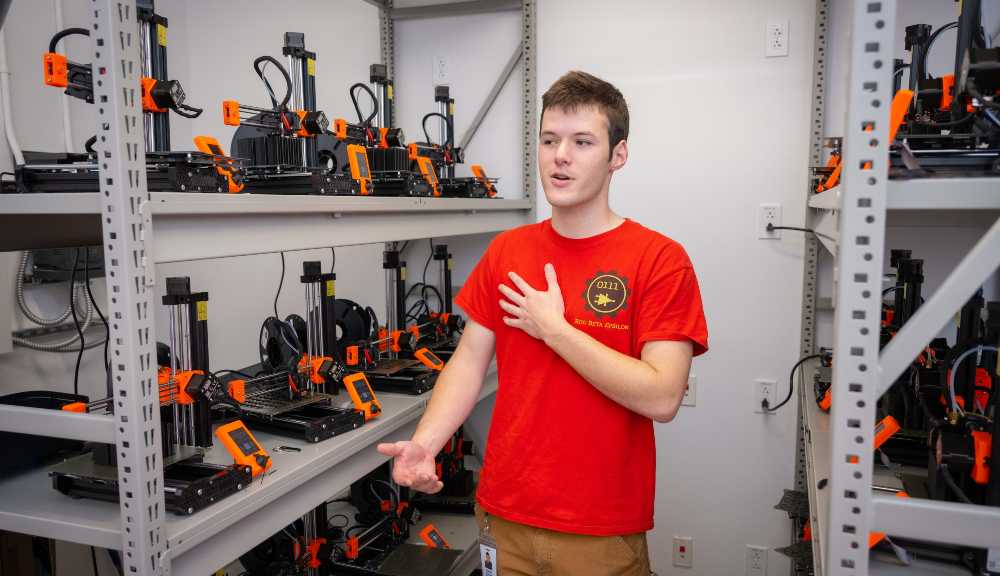WORCESTER, Mass. – A software library developed at Worcester Polytechnic Institute (WPI) is an integral element of a new control system that will be used by all teams participating in the FIRST Robotics Competition. The new system, developed jointly with FIRST and National Instruments (NI), will be delivered to nearly 1,700 high school teams, encompassing more than 42,000 students in eight countries, in time for next year’s competition.

The new control system was unveiled today during a ceremony in the Georgia Dome in Atlanta, where the annual FIRST Robotics World Championship is under way. On stage for the announcement were Dean Kamen, founder of DEKA Research & Development Corporation and FIRST and a member of WPI’s Class of 1973; Ray Almgren, vice president of academic relations for National Instruments; and Dennis D. Berkey, president and CEO of WPI.
--Read President Berkey’s remarks at the FIRST championship in Atlanta.--
"WPI is pleased to have provided this critical software, the brains and heart of the new controller, as a key element of the FIRST Robotics kits used by thousands of students around the world,” Berkey said. “A splendid example of the work that takes place on our campus, it will offer all of the teams participating at FIRST greater possibilities for creativity and innovation."
The hardware for the control system, which includes a 32-bit real-time processor and 802.11 wireless Ethernet, will greatly expand the capabilities FIRST teams can build into their robots. To program the new controller, teams will have a choice of using the language C/C++ or National Instrument’s LabVIEW, a graphical programming language. Teams using C/C++ will base their code on a programming library developed by Brad Miller, associate director of WPI’s Robotics Resource Center, and a team of WPI faculty members and students. Called WPILib, the library includes a wide range of modules that will enable high school students to easily and quickly develop programs that take full advantage of the enhanced power of the new control system. Miller says WPILib will be released as an open-source software project, giving teams the ability to develop their own code and share it with the FIRST community.
In addition to providing software for the control system, WPI will serve as the clearinghouse for many of the support materials related to the new controller, including documentation, tutorials, and videos. The materials will be made available on the FIRST Robotics Resource Center website (first.wpi.edu), which WPI has hosted since 2006. The site provides a centralized source of information for teams around the world participating in all FIRST competitions (FIRST LEGO League to FIRST Robotics Competition).
At this year’s world championship, WPI students and faculty will be seeking feedback from FIRST participants that will help them transform the FIRST Robotics Resource Center into a dynamic, interactive website. With a two-year, $189,500 award from the National Science Foundation, two WPI student project teams are building a social networking community for FIRST teams that will promote the sharing of information, help teams support one another, and make it easier for new teams to get up and running. The site is expected to debut this fall, in time to help support the rollout of the new control system.
The FIRST Robotics Resource Center and the new controller software are just two aspects of WPI’s multifaceted involvement in robotics and robotics education. In 2006, WPI launched the nation’s first undergraduate degree program in robotics engineering. The program draws on the expertise of more than 20 associated faculty members in three departments (Computer Science, Electrical and Computer Engineering, and Mechanical Engineering). Its development was guided by an advisory board comprising representatives of several leading robotics companies (including iRobot and Bluefin Robotics), who, along with Dean Kamen, serve on the program’s advisory board.
WPI has sponsored the FIRST Robotics team at the Massachusetts Academy of Mathematics and Science at WPI (Team 190) since 1992, making the team one of the oldest in the nation. Last spring, the team brought the world championship trophy home from Atlanta. WPI was the first university to offer a full scholarship to FIRST team members; this year it will award the WPI Design Innovation and the Paul Allaire Leadership scholarships—both full, four-year scholarships to WPI—along with three $10,000 runner-up scholarships.
Each year, the university sponsors three major robotics competitions that engage well over 1,200 local and regional elementary-, middle- and high-school students. In addition, university faculty, staff, and students conduct robotics demonstrations at more than 50 schools and organizations throughout the region and work with K-12 schools on curriculum development and other robotics outreach programs. During the summer, WPI includes robotics components in engineering and science programs designed for students—particularly girls and students from underrepresented minorities--in middle school and high school.


